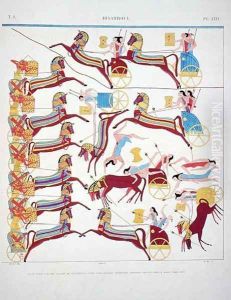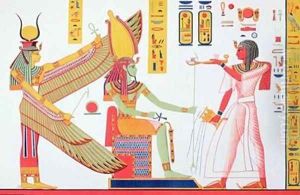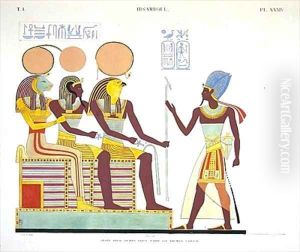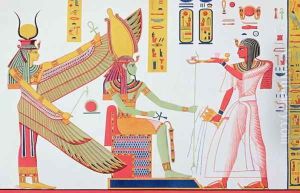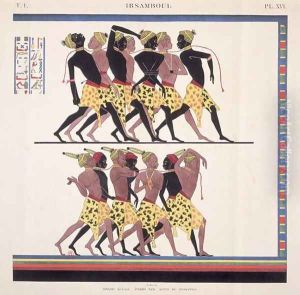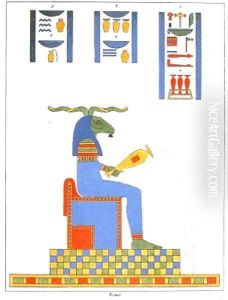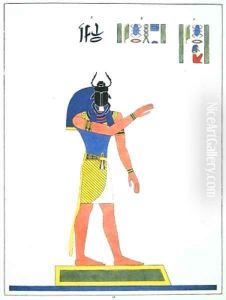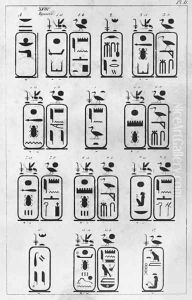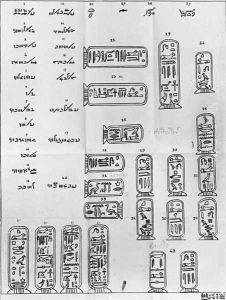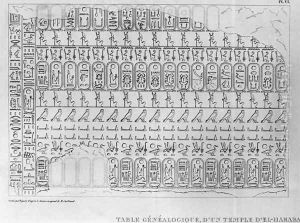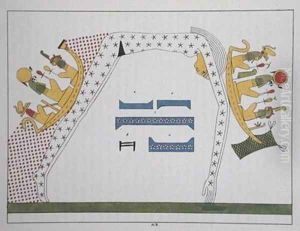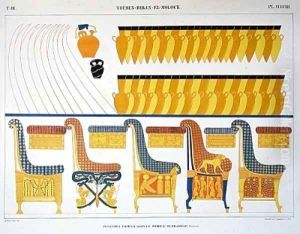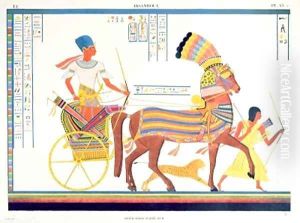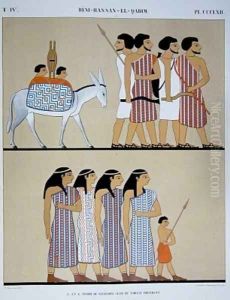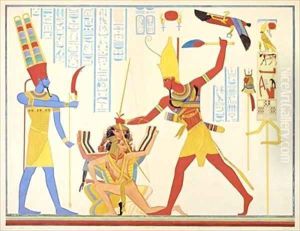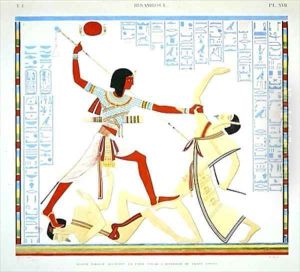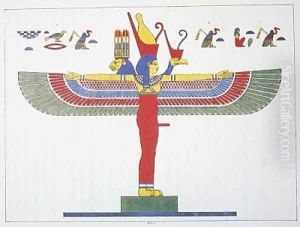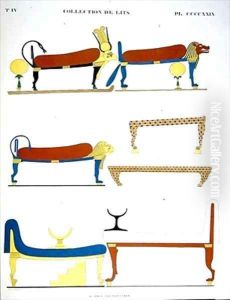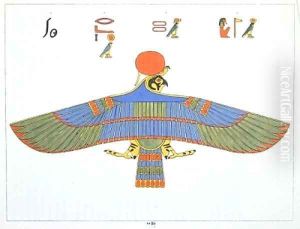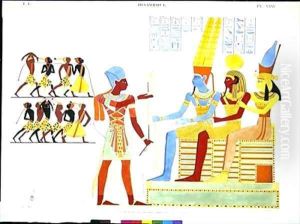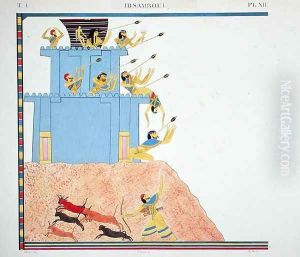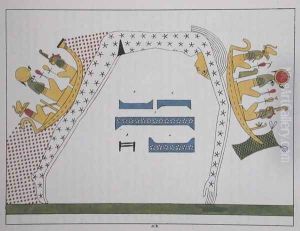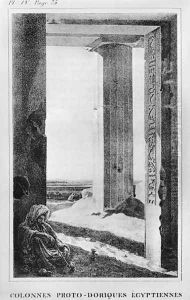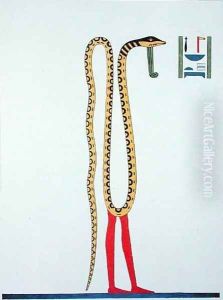Jean Francois Champollion Paintings
Jean-François Champollion, born on December 23, 1790, in Figeac, France, was a scholar, philologist, and orientalist whose work primarily focused on ancient Egypt. He is most renowned for deciphering the Egyptian hieroglyphs, a breakthrough that enabled a deeper understanding of Egyptian history and culture.
Champollion was a child prodigy who had mastered several languages at a young age, including Latin, Greek, Hebrew, Arabic, Syriac, Chaldean, and Chinese. His passion for languages, coupled with a fascination for history, led him to focus on the study of ancient Egypt. From 1807, he began his formal education at the Collège de Grenoble and later continued his studies in Paris.
His greatest achievement came in 1822 when he made a breakthrough in understanding the Rosetta Stone, which had been discovered in 1799. The Rosetta Stone contained a decree inscribed in three scripts: Greek, Demotic, and hieroglyphic. Champollion's knowledge of Coptic (the Christian Egyptian language), combined with the Greek text on the Rosetta Stone, allowed him to decipher the hieroglyphs and thus unlock the language and literature of ancient Egypt.
Following his decipherment, Champollion published several works on the Egyptian language and hieroglyphic writing, most notably 'Précis du système hiéroglyphique des anciens Égyptiens' in 1824. He continued to develop the field of Egyptology, becoming the first professor of Egyptology at the Collège de France in 1831.
Champollion's work was not only academic. He engaged in expeditions to Egypt to study ancient monuments firsthand. His 1828-1829 expedition with Ippolito Rosellini, known as the Franco-Tuscan Expedition, was particularly fruitful, as it allowed the systematic recording of numerous Egyptian monuments.
Jean-François Champollion's health declined due to his tireless work and travels, and he died on March 4, 1832, in Paris. His contribution to Egyptology was immense, as his decipherment of hieroglyphs laid the foundation for modern understanding of ancient Egyptian language and civilization. Champollion is remembered as the 'Father of Egyptology,' a testament to his enduring legacy in the field of historical linguistics and the study of ancient Egypt.
